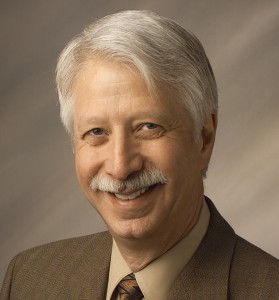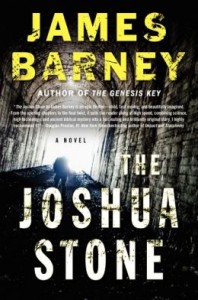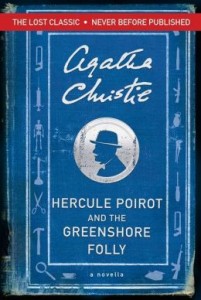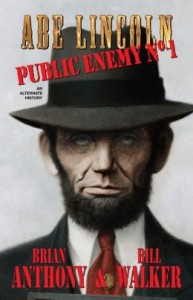Abraham Lincoln – 16th President and 1920s Mobster.
Hannah Wheelhouse – As a young girl, her grandfather cast a spell over the bullet used to shoot the President.
Melvin Purvis – An FBI Agent pursuing Lincoln on the Orders of J. Edgar Hoover.
Charlie Barns – A young drifter that Lincoln befriends.
John Wilkes Booth has shot the President. However, something went wrong, and the President did not die. Instead he remained in a coma to awaken in the 68 years later in 1933. Now he’s being pursued by the FBI and J. Edgar Hoover. He’s become a public enemy.
I found this quite a fun story. As a fan of this time period, it was interesting to see Lincoln interact with historical figures from that time period. If I had one issue with it, the character of FDR was a little more hostile than I would have thought. It didn’t seem to match his character as well, based on what I’ve read of him in other books. However, given the storyline, I was able to overlook that small discrepancy.
The rest of the book I found quite enjoyable. The action scenes were fun, and it was just kind of enjoyable to see Lincoln go full on gangster. While it’s not going to be the greatest story ever written, it’s a fun read especially for those interested in alternative histories.
I’d rate it for older teens and adults to the content of it, but I do recommend it for historical fiction fans. Grab a copy, and be sure to drop back by and let us know what you thought.
CHAPTER ONEMarch 3, 1934
Lake County Jail
Crown Point, Indiana
Counselor Louis Piquett felt a trickle of cold sweat roll down between his shoulder blades and silently cursed God, the courts, and the governor of the state of Indiana. He couldn’t afford to be nervous today, yet his head pounded and his stomach churned from the breakfast he’d eaten at a roadside diner on the way to the jail. He fought back a wave of nausea and cranked open the Ford’s passenger side window, letting the raw March air wash over his face. He closed his eyes and breathed it in.
“You okay, Louis?”
Piquett turned toward his law partner, Arthur O’Leary, and nodded. “Right as rain. Just wish you’d turn down the blasted heat.”
O’Leary’s lips curled in a lopsided grin, which gave his narrow hawk-like face an air of mirthful menace. “Sorry…you know I’m always cold.”
Piquett took off his fedora and wiped his forehead with a wrinkled linen handkerchief. “Yeah, I know. You should go see the doctor about it.”
O’Leary grinned, and Piquett gazed out across South Main Street at the late-Victorian pile that was the Lake County Jail and Courthouse, his eyes scanning the mounted machineguns and the dozens of National Guardsmen manning them behind a four-foot high wall of fifty-pound sandbags.
“You’d think they were expecting the Kaiser’s army,” O’Leary said, chuckling.
“They just don’t know what to make of our client, Arthur. Lord knows, I sometimes wonder about him myself.”
“He doesn’t belong here, that’s for sure,” O’Leary said, shaking his head.
“Unfortunately, his enemies think otherwise. You and I both know he didn’t kill that federal officer.”
“That’s not what I meant.”
Piquett stared back at his partner, his dark eyes like flints. “I know what you meant.” The handkerchief came out again. “You take care of the guards, like I asked you?”
O’Leary nodded. “There won’t be a search.”
Piquett patted the left side of his suit jacket. “They find this on me and we’ve got a lot more trouble than we ever bargained for.”
O’Leary shot his partner a look of annoyance. “Nobody’s got a gun to your head, Louis.”
Despite the rumble in his guts, Piquett smiled. “That’s why I like you, Arthur. You always look at the bright side.” He glanced at his watch. “Time to go. Wish me luck.”
O’Leary nodded, and Piquett eased himself out of the Ford and closed the door. He hesitated a moment then leaned in through the open window. “If I’m not out in twenty minutes, you get on out of here. You remember where I put the emergency funds?
“I remember.”
“Good. Keep lookin’ at that bright side, Arthur.”
Piquett slapped the roof of the Ford and strode toward the jail. Passing through the narrow opening in the sandbags, he gave the soldiers a cordial nod, climbed the steps and disappeared into the building.
Following an official clearance, and after passing through a succession of remotely-controlled gates, he stood before the final door separating him from his client. The lone guard, seated at a scarred oak desk, motioned toward the open logbook lying in front of him. Piquett picked up a pen off the blotter and signed his name with a flourish.
“Morning, officer,” he said, handing back the pen.
The guard, a scrawny young man with greasy black hair and a dull look in his eyes, took back the pen with a smirk spreading across his face.
“Yeah, well, it ain’t so good for that client a yours, counselor.”
Piquett’s trial-winning smile widened. “Well, we’re all innocent in the eyes of the law, until proven guilty, officer. That’s the very foundation on which our great and glorious nation resides. Besides, you never know how a day’s going to end, until it’s over.”
The guard frowned, his puzzled expression making him look even less intelligent. “You mind standing back and raising your arms, counselor?” he said. “Gotta search ya.”
Piquett’s stomach rolled over, but he managed to keep the grin plastered to his face, even as he felt the sweat break out anew.
Just then an older guard stuck his head in the doorway.
“He’s clean, Jeff.”
The younger guard’s frown deepened. “But Sheriff Holley said we was to search every visitor ‘fore I pass ‘em through this point.”
The older man leaned into the room, his face flushing. “And I’m tellin’ you he’s clean.”
Piquett watched the tense exchange between the two guards and said a silent prayer.
The younger guard appeared to think about this for a moment, the gears in his mind grinding slowly. Then he sighed and shook his head. “You say he’s clean, Irv, then fine, he’s clean.”
The older guard nodded, giving Piquett a knowing look the younger guard missed then left the room. The younger guard stood and threw the lever that operated the automatic doors. There was a loud “clunk,” followed by the whir of machinery. The door slid open and clanged to a stop.
Another guard appeared on the other side of the open doorway and motioned for Piquett to follow.
They passed through a corridor lined with empty holding cells. At the end of the hall Piquett spotted a wooden chair facing one of the cells. The guard motioned for him to sit. For a fleeting moment, Piquett toyed with the notion of turning around and leaving, going back to the car and driving away–maybe take that vacation he’d always promised himself. But then, whatever was left of his tattered code of ethics took over and he eased himself into the chair.
“Thank you, officer,” he said to the guard. “I’ll let you know when we’re done.
The guard nodded, retraced his steps down the corridor and disappeared around the corner. Piquett kept his eye on the corridor for another moment then turned toward the cell.
His client sat in a matching hardback chair dressed in a white shirt, charcoal-gray vest and matching pants. He was impossibly tall–even sitting down–and impossibly…there. The face he’d grown up admiring, the face that graced the penny and the five-dollar bill now sat watching him with a look of bemusement, gray eyes twinkling in the harsh glow of the bare bulb hanging from the ceiling.
“Good morning, counselor,” Lincoln said in his high, soft-spoken voice.
“Good morning, Mr. President.”
“Please, Mr. Piquett, I do not think it fitting to refer to me by that hallowed moniker, especially when viewed in the harsh light of my present circumstances.”
Piquett felt his face redden. “I’m sorry, sir, you’ll have to forgive me. I much admired your administration, your achievements.”
Lincoln smiled revealing gaps between his teeth. “And while my achievements may make me immortal, I am an inconvenient reality whose presence is a reminder of things some would prefer to forget. As far as those demigods who now reside in Washington are concerned, I am a man out of time and out of step with the problems of the day.”
“I disagree, Mr. Lincoln.”
Lincoln slapped his knee and chuckled. “You know what’s truly ironic, counselor? The tenor of Washington has not changed all that much. I suspect the streets are cleaner and summers are more tolerable nowadays, but those puffed-up politicians have raised backstabbing to a high art. Practice makes perfect. Did you bring it, Mr. Piquett?”
The abrupt shift in the conversation flustered the lawyer for a moment. “Y-yes, sir.”
He reached into his jacket and pulled out a small package wrapped in butcher paper and tied with twine. He handed it through the bars and Lincoln took it with his large, calloused hand. The package disappeared into his pocket.
“Thank you, counselor, you’ve been most helpful. And I appreciate all that you’ve done. I was especially inspired by your performance in the courtroom during my arraignment last month.”
Piquett puffed with pride. “It was an honor, sir. I just wish I could’ve done more.”
Lincoln stood and thrust his hand through the bars. “You’ve done more than any man could ask. If I have need of you again, I will surely call on you.”
The lawyer grasped his client’s hand, feeling the strength in the older man’s grip.
“Where will you go?” Piquett asked.
Lincoln’s expression turned melancholy. “Back into the history books where I belong, counselor…if they’ll let me….”
Ten minutes later, as O’Leary guided the Ford through the crush of late morning traffic, Piquett thought about the small wrapped package he’d given Lincoln and wondered–in spite of his sordid lack of ethics–if he’d done the right thing, after all.
* * *
Jail Handyman Sam Cahoon went cold all over when he felt the barrel of a pistol jabbing into the small of his back. But it was that high voice in his ears that sent his heart racing.
“I’ve got to be going, Sam,” Lincoln said, “and I need your help. Please don’t make me use this. I know only too well what it can do.”
Lincoln guided him over to the locked steel door leading to the adjoining room and motioned for Sam to call out to the guards. A large black man rose from a nearby table where he’d been playing solitaire and joined them. When Sam continued to hesitate, Lincoln kicked the door with his foot, sending a booming sound reverberating around the Day Room, which now fell silent.
“That you, Sam?” came the voice from the other side of the door.
Sam looked to Lincoln, his eyes wide with fright. Lincoln pressed the barrel harder into the handyman’s back and nodded.
“Yeah, it’s me,” Sam said. “I’m done in here.”
“All right,” the voice replied.
A moment later came the rattle of keys and the door swung inward. Lincoln kicked the door hard, sending the startled guard behind it sprawling, then he shoved Sam Cahoon aside and grabbed the guard, who was scrambling to his feet.
“Y-you out of your mind?” the guard sputtered.
“So they tell me, son. Now you go on and get us into the guardroom, and no tricks.”
The guard’s hands trembled, causing him to fumble with the keys. Lincoln jabbed the barrel harder into the guard’s back, eliciting a moan of fear from the man.
“Hurry, now.”
“I g-got it,” the guard said, slapping the key into the lock and twisting it. They burst into the guardroom, where a civilian fingerprint technician and one other guard sat drinking coffee and chewing on jelly donuts, their eyes as round as saucers. Lincoln spotted two Thompsons with fully loaded drum magazines sitting on the windowsill and nodded to the black man.
“Mr. Youngblood, we shall require those fine instruments of destruction.”
The black man chuckled and grabbed them, handing one to Lincoln, who then held up the pistol he’d used for all to see. A sly grin spread across his face. It was a crudely carved wooden gun blackened with shoe polish, the words “Colt .38″ etched into its side.
Both the guard and the fingerprint technician shook their heads in disgust.
Lincoln’s grin widened. “Well, now, it does seem one can fool some of the people all of the time.” He put the wooden gun back into his pocket and waved the barrel of the submachine gun towards the exit door.
“Mr. Youngblood, take this officer to one of the cells.”
“Yes, sir.”
Youngblood manhandled the guard out of the room and returned moments later.
Lincoln looked at the fingerprint technician, who sat frozen, the jelly donut still hanging from his mouth.
“What’s your name, son?” Lincoln asked.
The young technician yanked the donut from his mouth.
“Uh, Ernest Blunk, sir. You gonna shoot me?”
“I have no desire to kill anyone, Mr. Blunk, but I am getting out of here. It’s your choice.” Lincoln’s gaze was implacable and Blunk nodded soberly and stood up.
“All right, gentlemen,” Lincoln said, “shall we take our leave?”
After a short trip down two corridors and one flight of stairs, they emerged into the alley. Lincoln eyed the narrow passageway in both directions, noting the way was clear. He smiled and turned to Blunk, who stood with his arms wrapped around himself, shivering in the cold.
“Where’s the garage, son? The one with the private cars.”
“Down the alley, around the c-corner, behind the courts.”
“Let’s go.”
The garage was in a shed-like building with a sliding wooden door that reminded Lincoln of an old barn. The door shrieked on its rusty rails as Youngblood slid it open. Inside it was toasty warm and reeked of gasoline and spilled oil. A lone mechanic lay under a late-model Chevy, banging away at a water pump and cursing under his breath. Another man sat behind a desk in the small glassed-in office. Just then a woman walked into the garage.
“Mr. Saager, is my car–” She stopped in mid-sentence when she spotted Lincoln and Youngblood wielding the two Thompsons and fainted dead away, her limp body slapping against the grimy concrete.
Youngblood handed his Thompson to Lincoln, picked up the woman and deposited her inside the office on a battered sofa. The black man motioned for the man at the desk to move and the man scrambled out the door with his hands in the air.
“What’s the fastest car in here?” Lincoln asked, handing Youngblood back his Thompson.
The man from the office looked around and nodded toward the mechanic under the Chevy.
“Hudak’d know best.”
“Ask him to join us.”
The man eased over to the Chevy and gave the mechanic’s leg a nudge with his foot.
“What you want, Saager?”
“We got a man here asking about fast cars.”
“What do I look like, a salesman? I’m up to my butt in work here, in case you hadn’t noticed, and I got to get this damn Chevy out of here by two.”
Saager looked to Lincoln and shrugged. Youngblood raised the barrel of his Thompson and Saager paled a few shades whiter. He kicked the mechanic harder and said. “You get on out here, Hudak, if you know what’s good for you.”
The mechanic slid out from under the car, the curses on his lips dying away when he spotted the two men and their machineguns.
“Damn!”
“What’s the fastest car in here?” Lincoln asked.
Hudak jabbed his finger toward a sleek brand-new car parked in a corner, its jet-black paint gleaming under the hooded lights. “That there Ford. Got a real honey of a V-8.”
“That’ll be fine, Mr. Hudak.”
“But that’s Sheriff Holley’s new car.”
Lincoln laughed. “Even better. Mr. Blunk, you will drive. Mr. Hudak, you and your partner will disable all the other vehicles in the garage.”
Hudak looked incredulous.
“Now, Mr. Hudak.”
The mechanic walked toward the Chevy, shaking his head. When he reached the car, he opened the hood and started gingerly pulling wires.
Youngblood rolled his eyes, grabbed a hammer and pushed the mechanic aside. “Not like that–like this.” He swung the hammer down onto the spark plugs one by one, shattering them then pounded holes in the carburetor. He handed the hammer to Hudak. “Now, go to it, my man. Just like the boss says.”
In moments every other car was disabled and Blunk pulled the Sheriff’s car up to the door, the engine revving with a throaty roar. Lincoln and Youngblood climbed in and Lincoln hung his Thompson out the window at Saager and Hudak. Neither man moved.
“All right, Mr. Blunk. Let us proceed.”
The car pulled into the alley and then out onto East Street. Lincoln swiveled his head back and forth, looking to see if anyone followed. “Nice and slow,” he said. “It wouldn’t do to draw attention to ourselves.”
They passed the courthouse and Lincoln smiled when he spotted all the soldiers. They swung around a parked bus and pulled up to a stoplight. A bank sat on one of the corners and Lincoln stared at it. “Mighty tempting to procure us some traveling money, but I think we’ve worn out our welcome here, Mr. Youngblood.”
Yes, sir, Mr. Lincoln,” the black man said, grinning from ear to ear. The light turned green and the car sped out of town. When they reached State Road 8, Lincoln relaxed and began singing an old hymn. His singing voice was surprisingly tuneful and brought a smile even to Blunk’s dour face.
“Where we going, anyway?” Blunk asked when Lincoln had finished singing.
“Wherever the winds of fate shall take us.”
Youngblood laughed as the car sped off down the road.
The Great Emancipator was free.






 Like
Like

 Seth Eisner was an unemployed English professor who wrote a 400-page dissertation on Jane Austen before he gave up trying to be poor and went to law school. He spent most of his career as inside counsel at Kraft Foods. He retired as Vice President and Associate General Counsel.
Seth Eisner was an unemployed English professor who wrote a 400-page dissertation on Jane Austen before he gave up trying to be poor and went to law school. He spent most of his career as inside counsel at Kraft Foods. He retired as Vice President and Associate General Counsel.

 Agatha Christie was born in 1890 and created the detective Hercule Poirot in her debut novel, The Mysterious Affair at Styles (1920).
Agatha Christie was born in 1890 and created the detective Hercule Poirot in her debut novel, The Mysterious Affair at Styles (1920).

 Bill Walker is an award-winning writer whose works include novels, short stories and screenplays. His first novel,
Bill Walker is an award-winning writer whose works include novels, short stories and screenplays. His first novel,  Brian Anthony is a writer and award-winning filmmaker. His first feature film,
Brian Anthony is a writer and award-winning filmmaker. His first feature film,  Susan is the author of seven well-received novels including her 2010 novel, ONE GOOD DOG, which enjoyed six weeks on the New York Times bestseller list.
Susan is the author of seven well-received novels including her 2010 novel, ONE GOOD DOG, which enjoyed six weeks on the New York Times bestseller list. I live in Texas now, but I grew up in Cleland Heights, a mixed ethnic neighborhood in Wilmington, Delaware that sat on the fringes of the Italian, Irish and Polish neighborhoods. The main characters of Murder Takes Time grew up in Cleland Heights and many of the scenes in the book were taken from real-life experiences.
I live in Texas now, but I grew up in Cleland Heights, a mixed ethnic neighborhood in Wilmington, Delaware that sat on the fringes of the Italian, Irish and Polish neighborhoods. The main characters of Murder Takes Time grew up in Cleland Heights and many of the scenes in the book were taken from real-life experiences.